The Intel Optane SSD 900p 480GB Review: Diving Deeper Into 3D XPoint
by Billy Tallis on December 15, 2017 12:15 PM ESTAnandTech Storage Bench - Heavy
Our Heavy storage benchmark is proportionally more write-heavy than The Destroyer, but much shorter overall. The total writes in the Heavy test aren't enough to fill the drive, so performance never drops down to steady state. This test is far more representative of a power user's day to day usage, and is heavily influenced by the drive's peak performance. The Heavy workload test details can be found here. This test is run twice, once on a freshly erased drive and once after filling the drive with sequential writes.
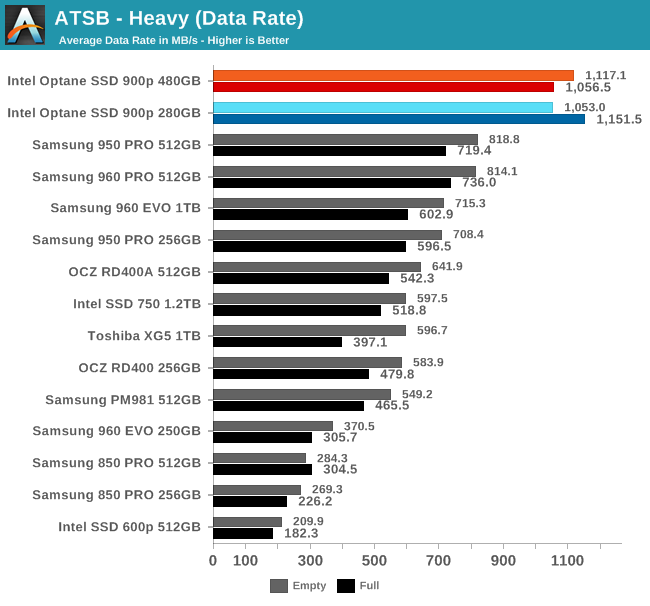
The Optane SSD 900p in either capacity delivers a much higher average data rate on the Heavy test than any flash-based SSD. As with the original review, the 280GB model is a bit faster when the drive is pre-filled than when the test is run on a freshly-erased drive; the opposite is almost always true of flash-based SSDs. The 480GB's results look more normal and fall in the same range as the 280GB's scores.
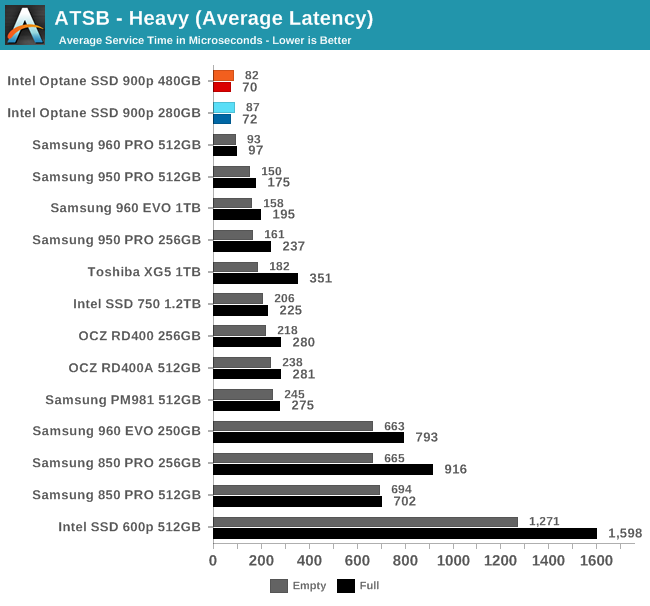
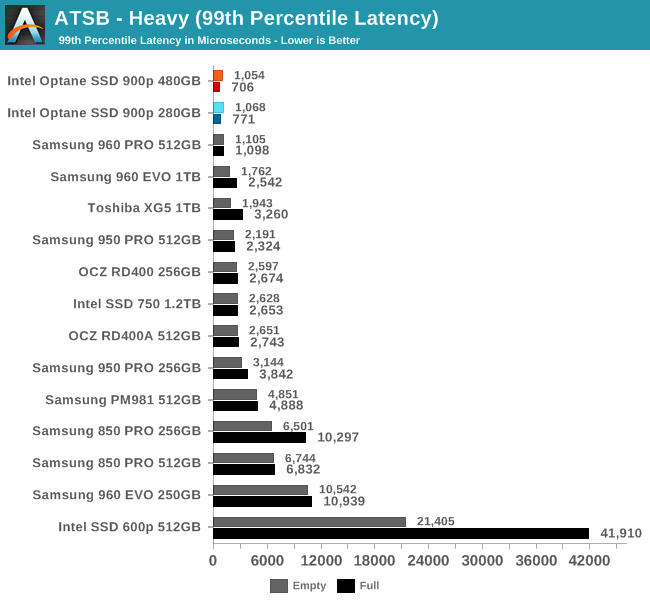
The average and 99th percentile latency scores of both Optane SSD capacities are slightly ahead of the fastest flash-based SSDs. Both models also show lower latency when the drive is filled than when it is freshly erased.
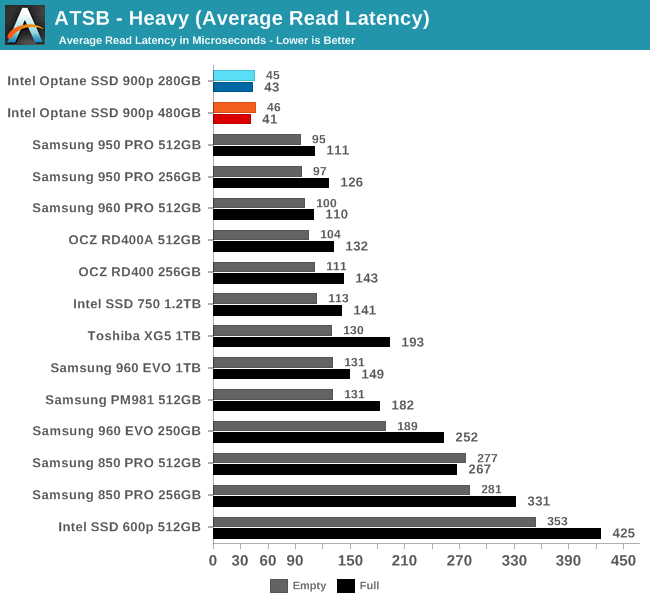
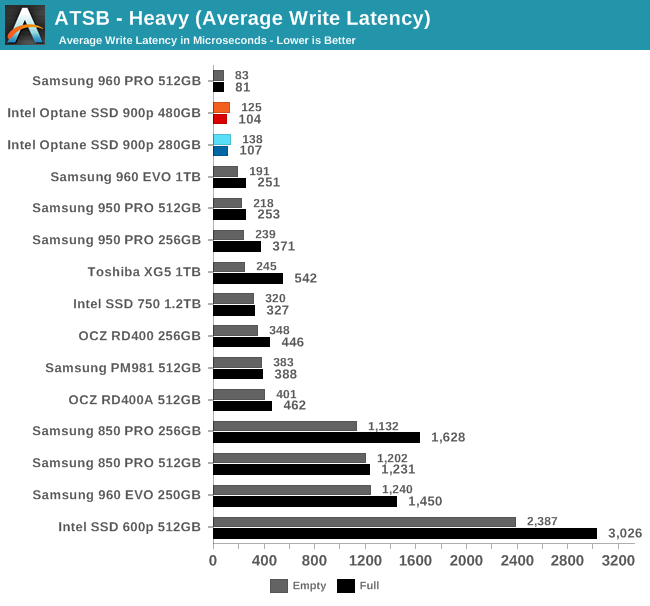
The average read latency of the Optane SSD 900p on the Heavy test is about the same for both capacities, and about half that of any flash-based SSD. The average write latencies are a bit worse than the Samsung 960 PRO but still clearly better than the 960 EVO or anything else.
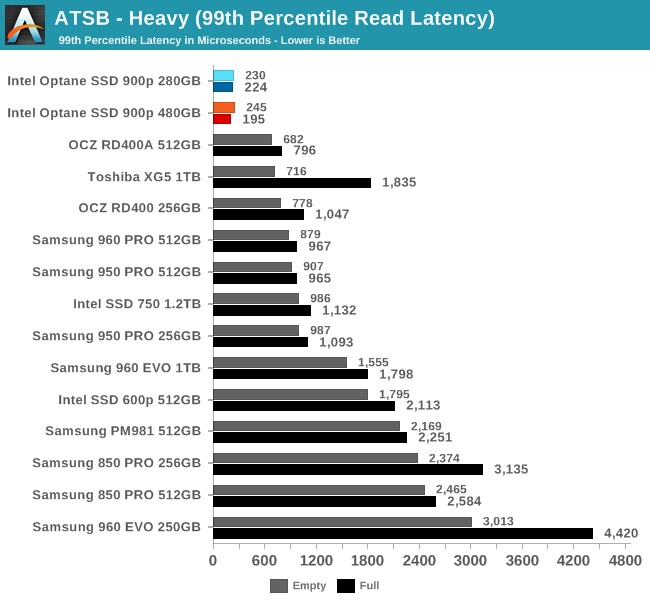
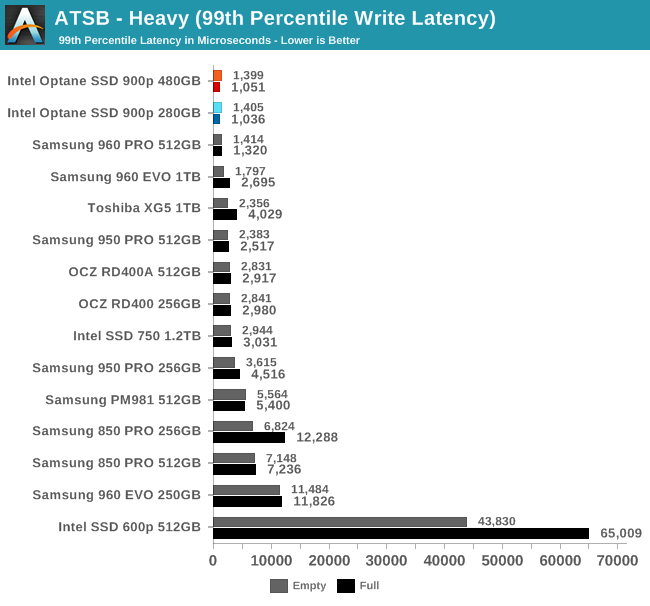
The 99th percentile read latency scores for the Optane SSDs are a fraction of the latency of any other drive, and both capacities of the 900p score about the same. The 99th percentile write latency is barely faster than the Samsung 960 PRO.
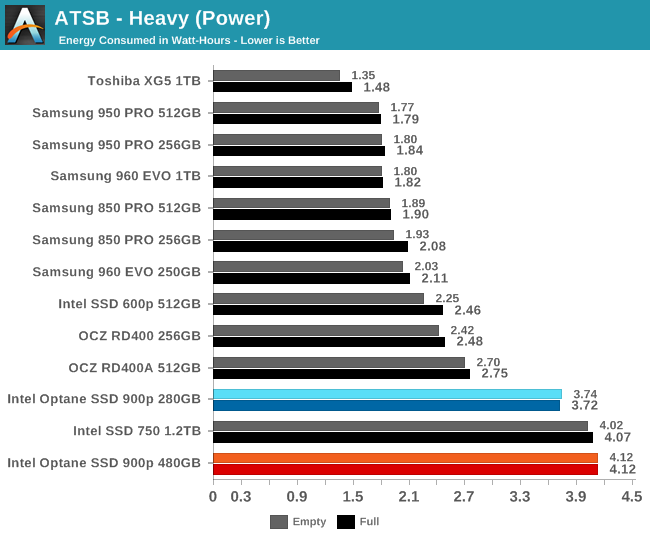
The power consumption of the Optane SSDs fits their heritage as derivatives of an enterprise drive. The only other consumer SSD this power hungry is the Intel SSD 750, another enterprise derivative. Even the M.2 PCIe SSDs with relatively poor power management and low performance use much less energy over the course of the test.
The 480GB 900p uses about 10% more energy than the 280GB model while performing about the same.










69 Comments
View All Comments
Nottheface - Monday, December 18, 2017 - link
So are the origins of xpoint memory here as claimed:"Bronek Kozicki
Silver badge
Report abuse
Holmes
one last point
There's been so much speculation about what XPoint actually is. Well, it might be Cross-Point memory, pretty well documented few years ago - here . Unity Semiductor where this research has been conducted was acquired by Rambus in 2012 and, one year later, Micron and Rambus signed agreement giving Micron access to all Rambus patents (which would include Cross-Point IP), details here. The wording used ("... granted to Micron and its subsidiaries") would also explain why XPoint venture is majority-owned by Micron."
From:
https://forums.theregister.co.uk/forum/1/2016/04/1...
Nottheface - Monday, December 18, 2017 - link
So from this:https://web.archive.org/web/20121117195338/http://...
emvonline - Tuesday, December 19, 2017 - link
NOT: XPoint is the same memory Micron and Intel were working on 10 years ago. Unity/rambus work is not at all relatedl. Side note: Intel owns the Name X point and licenses it to Micron. Intel owns the IP jointly with Micron.emvonline - Monday, December 18, 2017 - link
Real world numbers:I looked at a different website and the numbers showed large impacts on benchmarks. But if you look at actual gaming service times, boot times, or load times, Optane is faster but not noticeably faster (<10% difference). Could I easily tell the difference between this and other NVMe SSDs when gaming?
djayjp - Tuesday, December 19, 2017 - link
Nope.djayjp - Tuesday, December 19, 2017 - link
You wouldn't even be able to tell the difference between this and the budget sata SSDsemvonline - Tuesday, December 19, 2017 - link
I agree... would love to get Anandtech to agree publiclyalbert89 - Thursday, January 4, 2018 - link
Intel have given me more reasons why their optane series is nothing more then a price gouge.And non of the paid up Intel fangirls like Jays2cents, Linus Gordon from PCworld, TomsHradware etc, are going to convince me otherwise.
Chaser - Thursday, January 25, 2018 - link
Tomshardware paints a completely different picture on rather unique user experience these drives provide gamers and enthusiasts.